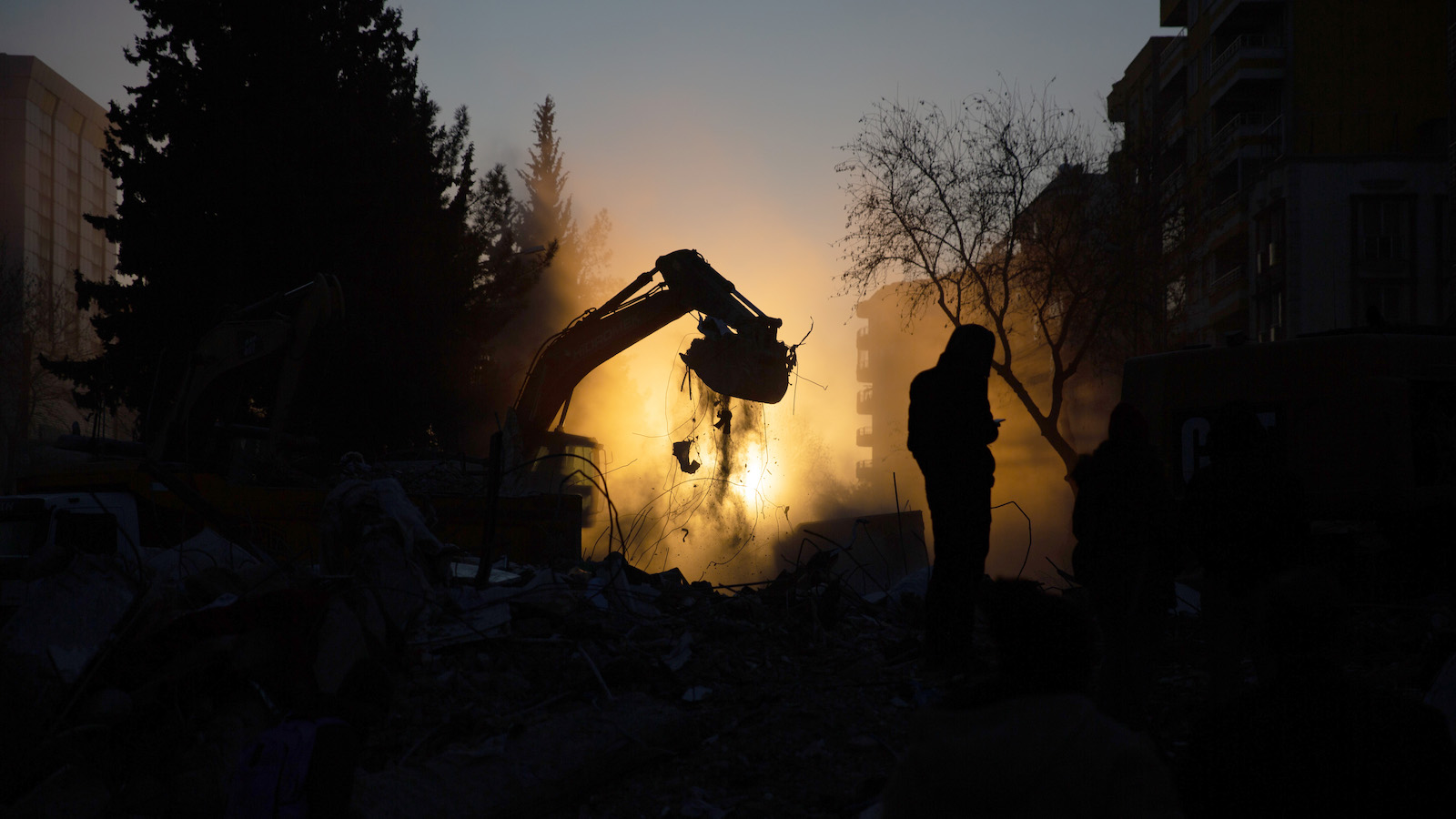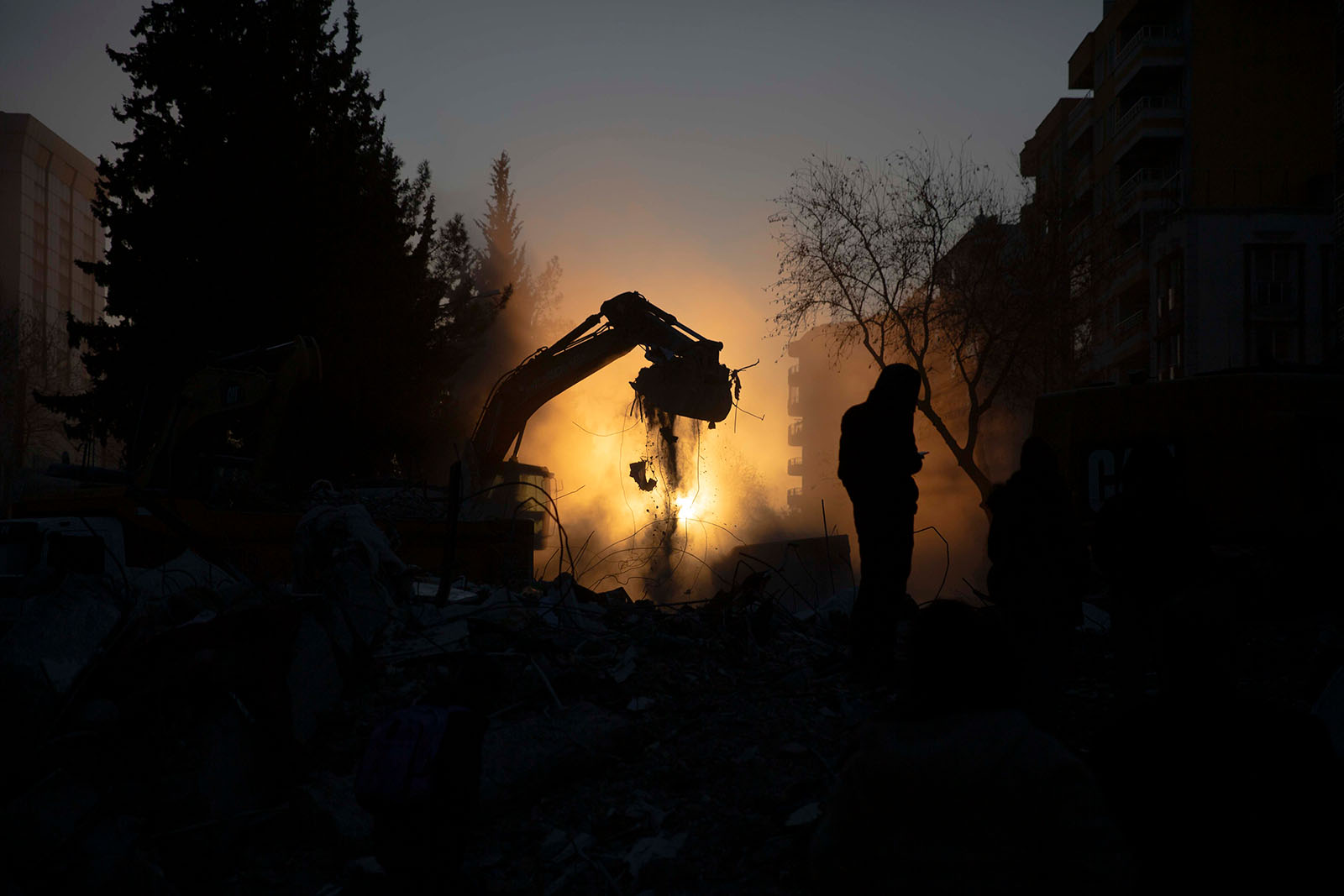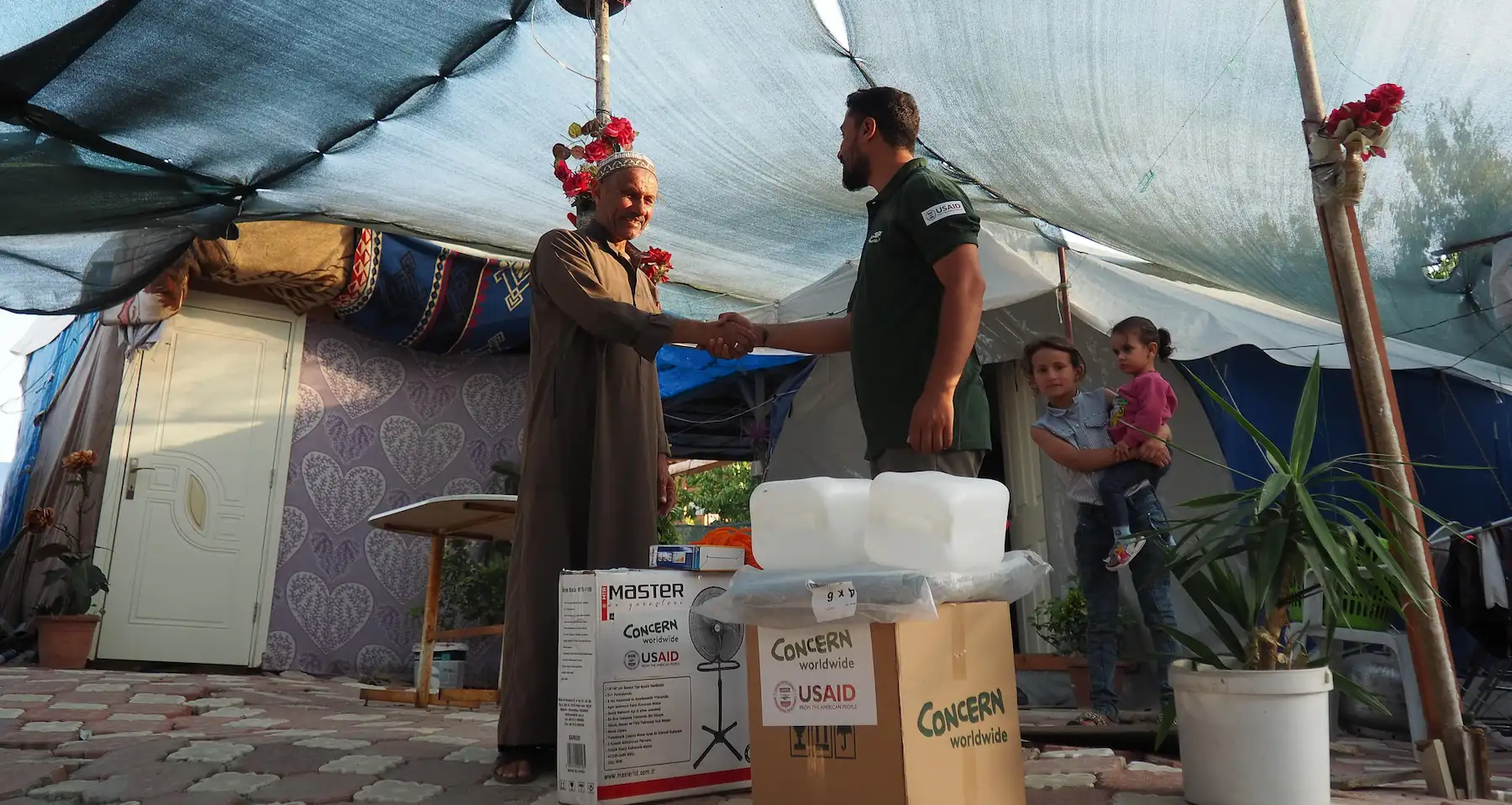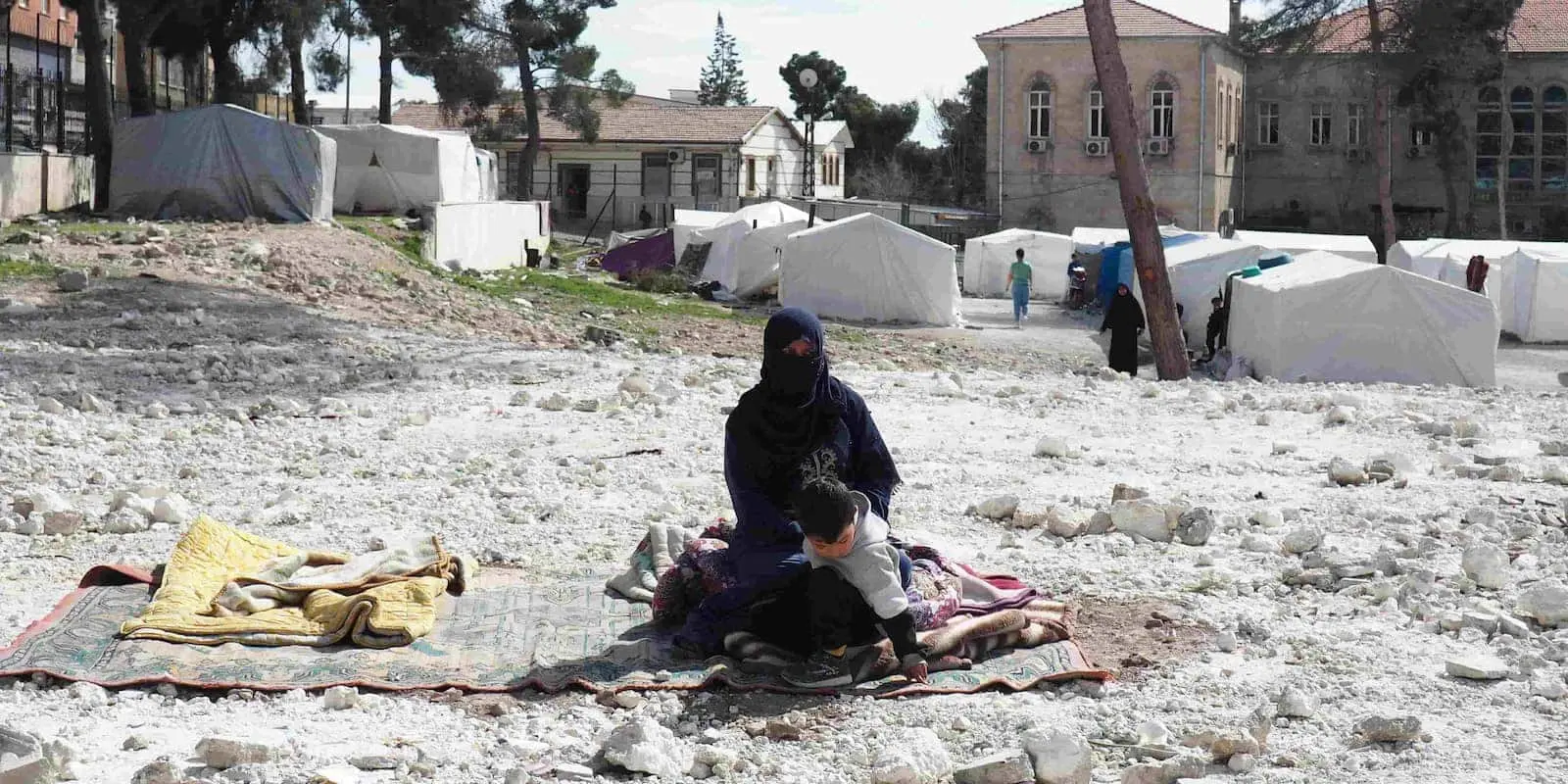On February 6, 2023, a series of earthquakes shook Turkey (Türkiye) and Syria, the worst to hit the region in nearly a century. Here’s what you need to know.
At 4:17 am local time on Monday, February 6, a 7.8-magnitude earthquake struck Türkiye (Turkey*) and Syria. By that evening, the Turkish Disaster and Emergency Management Presidency (AFAD) had recorded 120 aftershocks; of these, the United States Geological Survey counted at least 54 that registered at least 4.3 on the Richter scale. The main earthquake was one of the strongest on record in the area, and shares the record with the 1939 Erzincan quake as the strongest to hit Türkiye in recorded history. Worldwide, it’s the deadliest to hit since the 2010 Haiti earthquake.
In the days since Monday’s quake, tens of millions of people have lost their homes, loved ones, and in many cases their own lives. As this story continues to develop, here are five things you need to know about the Turkey and Syria earthquake.
1. We’re past the “golden hours” for emergency response and are now in a race against time
Initial estimates from the World Health Organization (WHO) indicated that as many as 20,000 people in Türkiye and Syria could die as a result of this earthquake. As of February 8 — just two days after the quake — that number was surpassed. Now, four days later, we can expect the numbers to continue to increase as we’re past what’s known as the “golden hours”: the first 72 hours following a disaster that are critical to saving lives. After this window, the survival rate for an emergency such as an earthquake can fall to somewhere between 5 and 10%.
“This is a race against time,” says Ali Fuat Sutlu, Acting Program Director for Concern Türkiye, who witnessed much of the devastation firsthand. “There are threshold limits: The first 72 hours are critical to life and safety of people under the rubble if they are still alive.”
The sheer magnitude of this earthquake, however, has made it impossible to reach everyone within those first 72 hours, with thousands of buildings collapsing in Türkiye alone. Sutlu adds, however, that the search and rescue efforts are still ongoing. “On the other hand, it is overwhelming. This kind of search and rescue mission needs simultaneous work on every collapsed building,” he adds. “The number of search and rescue teams are not sufficient to cover every collapsed building to save lives.”
“This is a race against time…The first 72 hours are critical to life and safety of people under the rubble if they are still alive.” — Ali Fuat Sutlu, Acting Program Director, Concern Türkiye
2. Winter in the Levant is harsh, and it’s complicating rescue efforts
While the desert landscapes of the Middle East/southwest Asia make for hot summers with temperatures well into the triple digits, they also make winters incredibly harsh. Over the last week, temperatures have hovered near freezing (32º F) during the day, and below freezing at night.
“During the earthquake — the very moment of the earthquake — it was snowing,” explains Sutlu. “And there was heavy rain in some provinces.” These harsh conditions have made it difficult for rescue crews to work, and have also added another level of risk for people trapped underneath rubble: exposure.
This is also a risk for millions of survivors who have either lost their housing or, fearful of going back to their homes, are choosing to sleep in their cars. Adelheid Marschang, Senior Emergencies Officer with the WHO, estimates that as many as 23 million people across Türkiye and Syria are at risk for exposure to the elements. This includes over 1 million children.
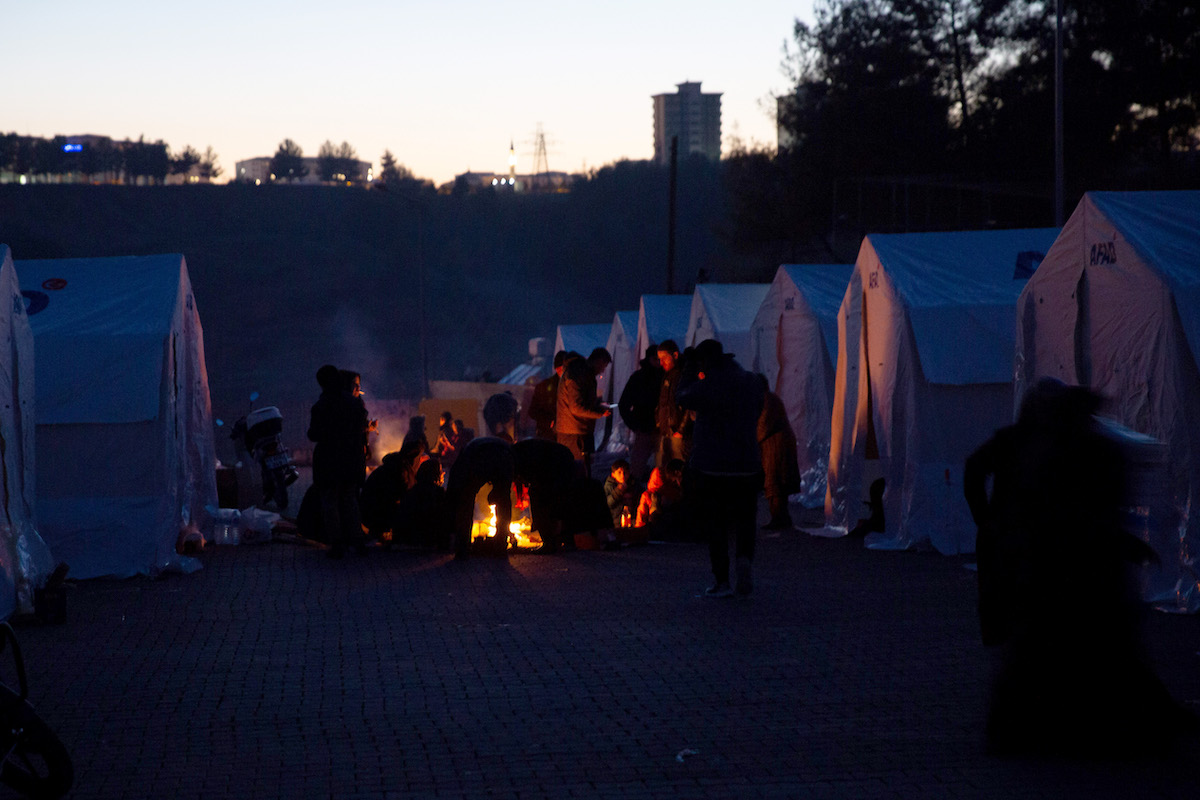
3. Essential aid has been blocked from reaching Syria
Despite the critical 72-hour window for disaster response and immediate international relief efforts in Türkiye, neighboring Syria — which was also at the center of the earthquake — has faced delays in getting critical supplies and personnel due to the ongoing conflict and humanitarian crisis in Syria.
Bab al-Hawa, a border crossing between Türkiye and Syria is the sole point of access permitted for all humanitarian organizations — from small, local operations to the UN — to deliver lifesaving food, water, medicine, and other essentials. It’s a direct lifeline for approximately 4 million people living in northwestern Syria (90% of the regional population) who rely on humanitarian assistance — especially in the winter months.
However, access to this border crossing is not always guaranteed. On January 9, the United Nations Security Council renewed its authorization of cross-border delivery of humanitarian aid from Türkiye into Syria for six months. “The adoption of the resolution is a relief…[but] it is not sustainable to have to renew this mechanism every six months, with high levels of uncertainty each time,” said Concern Worldwide CEO David Regan at the time of this resolution. “People’s lives hang in the balance, people who already live in dire conditions; their rights and needs must always take priority over political concerns.”
Less than a month later, we’ve been reminded of how crucial this point of access is. Officials from the World Food Program told the New York Times that the crossing itself had not been damaged in the earthquake, however the roads leading up to it were, cutting off access at a critical time.
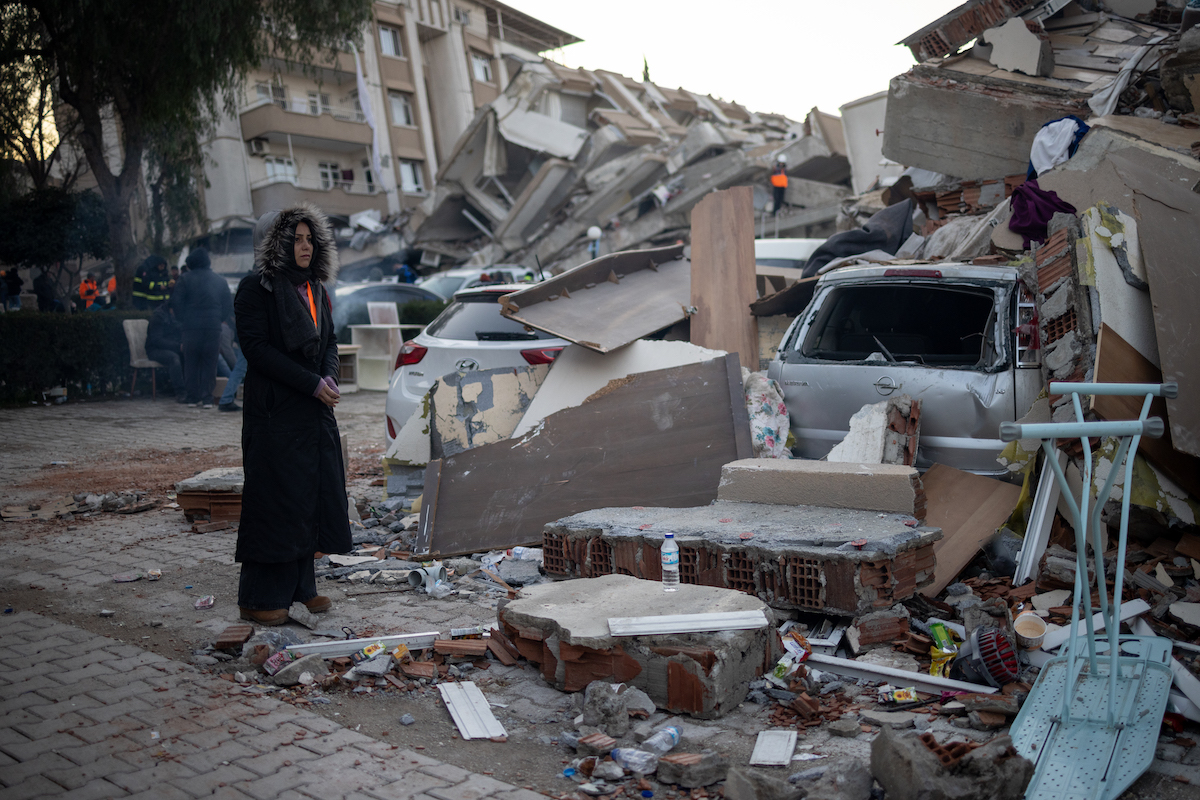
4. Rural areas of both countries are struggling for support
The destruction of office buildings, apartment complexes, and other large-scale buildings in cities like the southwestern Turkish city of Adiyaman — and the fact that rescue crews are outnumbered by the sheer amount of destruction — is bad enough. Hundreds of thousands of people have lost their homes, many of which were not built to withstand a seismic event such as this one. In Türkiye, the government has led efforts to find space for many of these people in former refugee camps (as well as government guesthouses and sports arenas), but even this capacity is not enough to meet the full scope of need.
However, Ali Fuat Sutlu adds that “it also seems that rural areas have been forgotten” in the immediate response. Part of this is due to the destruction of roads and heavy traffic on those roads that are still navigable. While the affected urban areas have larger populations, this isn’t strictly a story about numbers. “Elderly people predominantly live [in rural areas],” explains Sutlu, meaning that they are especially vulnerable. Even if people can access their money, shops aren’t open, meaning that their needs are being met by aid distributions. With rural areas underserved for these distributions, Sutlu says the people living there “are on their own for survival” until aid can reach them.
5. The lasting effects of this earthquake will continue long after homes are rebuilt
Given the scope of this earthquake, housing is one of the long-term issues that Sutlu cites. As we’ve seen in Haiti, helping families return to their communities can be a process that takes years. Even if a building didn’t collapse, the damage may still be extensive and even irreparable.
However, repairing the emotional and psychological damage of this earthquake for the tens of millions affected by it will be an even taller order. Türkiye hasn’t seen a major earthquake since 1999. The areas of Syria affected by the quake have been the site of more than a decade of conflict, and many living there have already faced the trauma of violence and displacement. Türkiye is also the world’s largest host country for refugees, many of whom have been affected by the earthquake. In Adiyaman, Nasima**, a 20-year-old Afghan who had moved to the area with her family just ten days before the quake, described the experience as “absolute madness.
“Everyone was outside, crying, running, scared,” she says. Her family had been asleep when the shaking started, and in just a few minutes they lost what little bits of certainty they had in their lives. “Today is the third night we are homeless. My daughter and mom are sick; we are not doing fine at all. We want somewhere safe, because we cannot go back to our house, and it is very cold outside.”
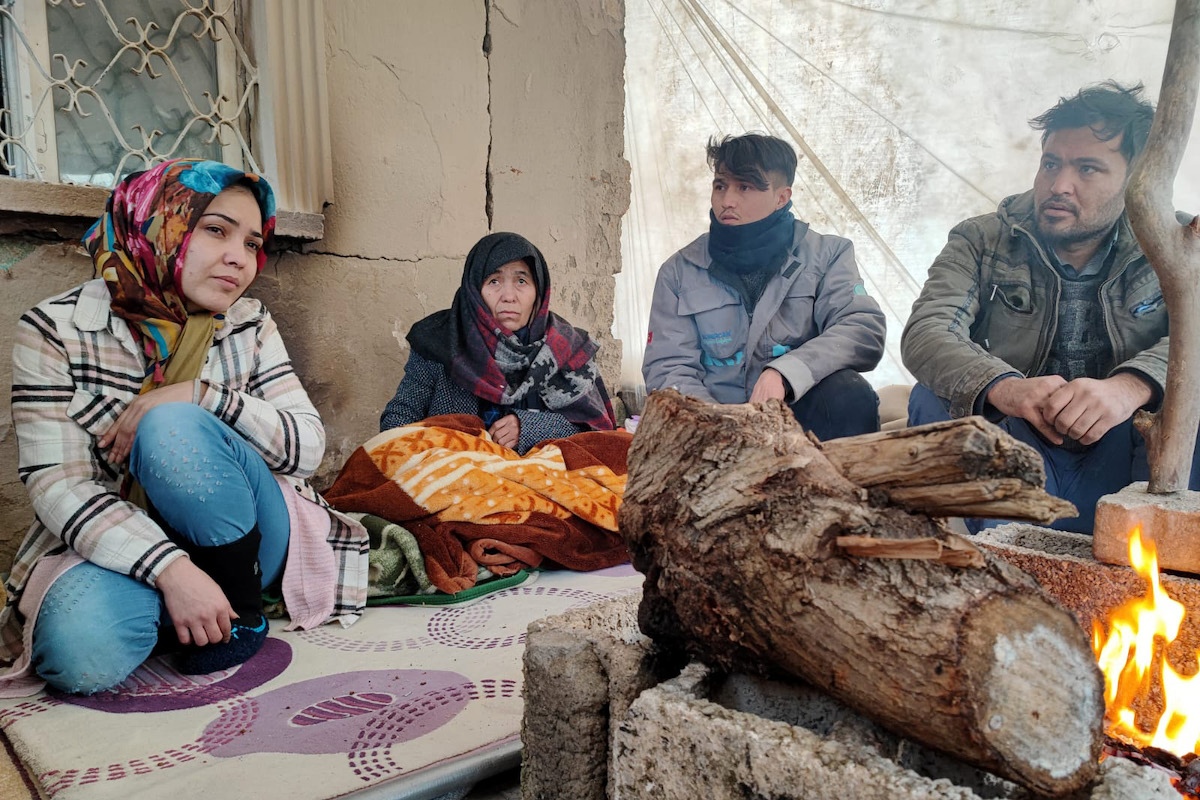
The Türkiye-Syria earthquake: How you can help
Concern has been working in some of the most affected areas in Türkiye and working with partners in northwest Syria since 2013 as part of our response to the crisis in Syria. Our 500 staff members from both countries survived the earthquake and immediately went into action to support relief efforts — some still wearing their pajamas.
While rescue efforts continue, both in Syria and Türkiye, a major priority for local authorities and organizations like Concern is to support those who have been left homeless by the earthquake. The Concern Worldwide team in Şanliurfa, Türkiye quickly began to deliver blankets, food, and other essentials to centers of refuge. They have been also helping to construct temporary shelters for those with nowhere to go.
Our response will continue to escalate and shift to meet the scope and needs of the situation as it evolves, especially with regards to the most vulnerable people affected. You can support our emergency appeal below.
Donate to our emergency response
*In the summer of 2022, Turkey officially changed its name at the UN to Türkiye, in keeping with how its name is spelled and pronounced in Turkish.
**Name changed for security purposes.

